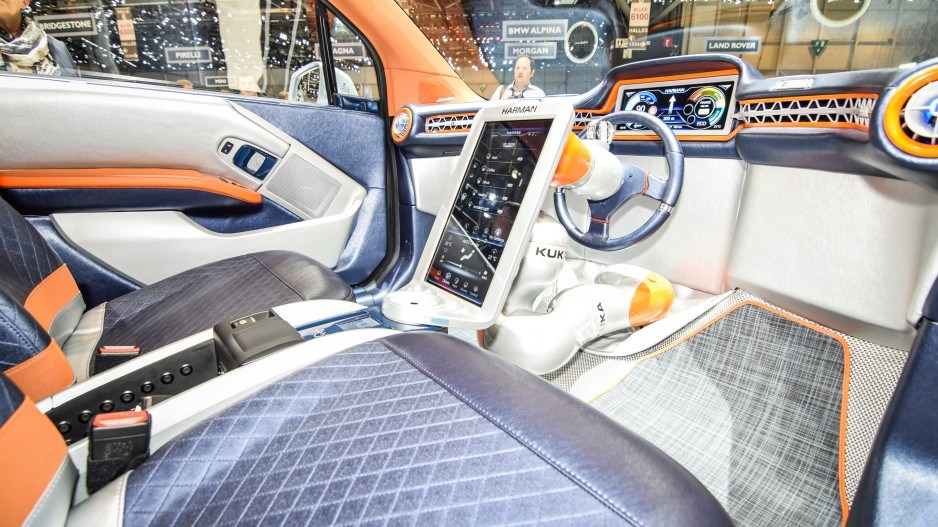A survey of more than 1,000 Insurance Corporation of BC (ICBC) customers found that half of them are unlikely to buy a self-driving car if autonomous vehicles go on sale in B.C., while 30% are not interested at all in a fully automated vehicle.
The April 19 Self-Driving Cars Presentation of Findings report, released under Freedom of Information, was based on 1,077 completed surveys from the Crown auto insurer and driving regulator’s customer advisory panel between March 23 and April 15. Email invitations went to 2,587 customers.
The Institute of Electrical and Electronics Engineers (IEEE) predicts three-quarters of the cars on roads by 2040 will be driverless. IEEE said the widespread adoption of autonomous vehicles would dramatically change intersections, traffic flows, highways and driver licensing.
The ICBC survey found 87% of respondents had heard a lot or some about the technology and a slim majority (53%) believe that self-driving cars would make B.C. roads safer.
“Few consumers trust self-driving cars completely when it comes to getting them safely to their destination,” said the report, indicating 12% of respondents said they trust the technology completely, while 16% do not trust it at all.
Respondents said self-driving cars would offer the benefit of improved mobility for the elderly or people with disabilities (46%), fewer crashes (43%) and reduced severity of crashes (43%).
ICBC statistics, based on 2013 reports, show 260,000 crashes across B.C., with 85,000 injured victims and 258 fatalities.
Less fuel consumption, lower emissions and shorter travel time were the bottom three benefits, according to the survey.
Half the respondents said drawbacks included safety consequences of equipment or system failure and 45% were concerned about legal liability if a self-driving car crashed.
Hacking (29%) and tracking of locations and destinations (14%) were other concerns.
The report does not indicate whether any of the respondents had ridden in a self-driving car, but it did include a section on “emotion felt when riding in a self-driving vehicle.” Anxious (28%) and powerless (15%) were the most popular emotions.
The report included questions on telematics – the monitoring and diagnostics of vehicle use.
“Consumers are divided in their willingness to have their vehicle and their driving monitored constantly for usage-based insurance,” said the report. “Consumers are divided on their comfort level with collecting and sharing information through the use of telematics.”
Telematics support is strongest for use of the technology to discourage or prevent auto insurance fraud and for validating facts in claims cases.
A report last year by the BC Freedom of Information and Privacy Association, “The Connected Car: Who is in the Driver’s Seat?” studied privacy and onboard vehicle telematics that are transforming mechanical vehicles into electronically controlled transportation and mobile communications devices.
The report said insurers use telematics for optional use-based insurance programs, to set premiums based on where, when and how one drives. Though telematics can increase efficiency, it could come at a cost, said the FIPA report.
“The monitoring of a person’s vehicle use, driving routes and destinations alone, for example, can reveal a great deal about that person – information that is useful not just for marketers and insurance companies but also to thieves, stalkers, and others with malicious intent. The security risks created by this unnecessary and inappropriate collection and retention of personal data is concerning, while the potential for hacking of electronic car systems that could interfere with control of the vehicle raises additional safety and security concerns.”
The customer survey came six months after ICBC said it had no records of reports on the potential use, cost/benefit analysis, feasibility and legal, safety and economic implications of driverless vehicles from 2014 to 2016.




